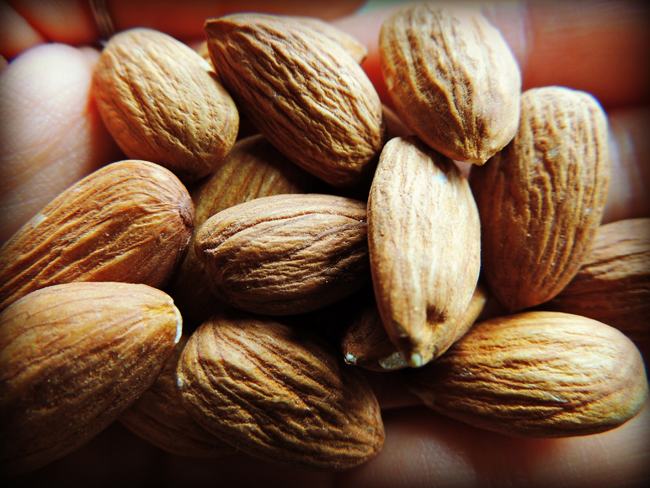When it comes to choline, the evidence is clear: Americans simply aren’t getting enough of it in their diets. Although woefully under-discussed, this essential nutrient is vital for the proper functioning of our cells and is absolutely critical for healthy growth and development- yet only 10% of the population is meeting the daily recommended intake. So why haven’t you heard much about it? Unfortunately, choline was cast from the glamorous mainstream health scene with its unjustly disgraced partner-in-crime cholesterol, and it is just now starting to make it’s way back. Discover the power of this humble nutrient and reclaim choline-rich foods in the diet with 5 simple ideas.
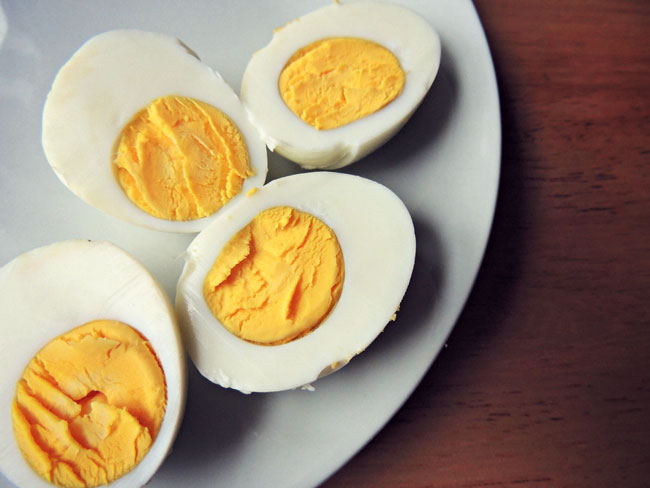
What is Choline?
Choline is an essential water-soluble nutrient that is usually grouped in as part of the B-Vitamin complex. Although not technically a vitamin by strict definition, this organic compound is required for life’s most quintessential functions, including basic cellular structure, nutrient transport and metabolism. Although it is naturally synthesized in small amounts within the liver, a significant amount of choline must be consumed in the diet to maintain health.
Choline was first discovered in 1862 by a chemist by the name of Adolph Strecker, who demonstrated that this unique compound was an integral part of the egg yolk and began to grow awareness about its nutritional significance. Yet with traditional animal foods like eggs and organ meats falling vastly out of favor in the mid 20th century, it was not until 1998 that the Food and Nutrition Board of the Institute of Medicine finally ordained choline as an essential nutrient and established clear dietary recommendations.
- Structural Integrity of Cell Membranes: Choline plays a role in the synthesis of phopholipids, phosphatidylcholine and sphinogomyelin, the key structural components of the human cell membrane.
- Metabolism & Liver Function: Research has shown that choline deficiency quickly results in Metabolic Syndrome, a condition involving insulin resistance, elevated serum triglycerides, increased serum cholesterol and obesity. In combination with a low-protein diet, choline deficiency also contributes to fatty liver disease.
- Nervous System Activity & Development: Choline is essential in the formation of the cholinergic neurons that make up portions of the brain, parasympathetic and sympathetic nervous systems. It is also a precursor to the neurotransmitter acetylcholine, which is involved in muscle function, memory, and learning among other vital processes.
- Cancer Prevention & Anti-Inflammatory: Studies consistently find that people with diets rich in choline have the lowest levels of inflammatory markers such as IL-6, TNF-alpha and C-reactive protein. Additionally, people that eat a choline-deficient diet for as short as a month have been found to have a significant increase in DNA damage and cancer risk.
- Early Growth & Development: It is particularly important for women who are pregnant and breastfeeding to eat choline-rich foods, as this nutrient plays an important role in the fetal development of the brain and nervous system. Deficiency in pregnancy has been linked to long-term learning disability and memory problems in offspring. Choline also naturally occurs in breast milk, as young children require a substantial amount to support the formation of the nervous system, which continues at a high rate into the fourth year of life. The presence of choline in breast milk is directly correlated to mom’s dietary intake however, so consuming appropriate foods should be a priority. If unable to breastfeed, it is critical that babies receive a formula that contains natural choline such as the Nourishing Traditions Homemade Baby Formula.
Supplements vs. Foods
As is the case with virtually any popularized nutrient, you will find a plethora of different choline supplements parading around on health food store shelves. The choline squeezed into pills and capsules and liquids however is usually in a form derived from soy lecithin, the questionable byproduct of the soy industry that is also used as an emulsifier in commercial baked goods and chocolate. Although refined to be allegedly free of irritating allergenic soy proteins, this source of choline is not ideal- especially considering that 90% of soy is genetically modified and that the lecithin is often chemically extracted using harsh solvents like hexane.
Unsurprisingly, choline is best obtained from pure whole foods in its synergistic form, where the full array of cofactors and complimentary nutrients are absorbed optimally. The current daily dietary recommendation for choline, according to the IOM, is 425 mg daily for women and 550 mg daily for men- standards that put nearly all Americans in the deficient range. Yet these modest values are just based on the minimum needed to prevent liver disease, and recent studies suggest that much higher intakes of choline have exceptional health benefits. The ideal sources of choline are animal foods like egg yolks and liver, which contain the most concentrated amounts of this nutrient and can be easily incorporated into the diet to meet requirements for health and wellness. Enjoy liberally of these choline-rich foods:
Pastured Eggs
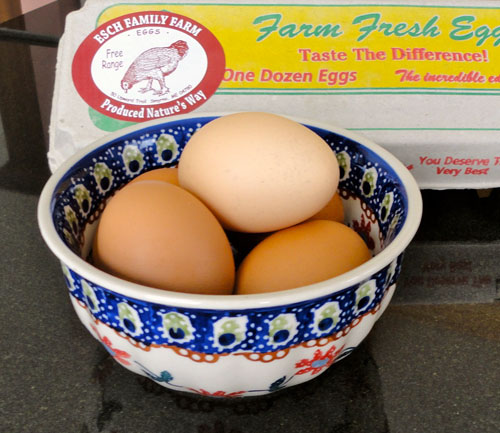
Just one egg yolk contains about 115 mg of choline. In traditional cultures women ate 5-7 egg yolks daily during pregnancy! Pastured eggs should be included whenever possible, as they contain a superior nutrient profile. Get creative with including egg yolks into your diet: add extras into scrambled eggs, enjoy in a homemade ice cream or custard, or include raw in your favorite superfood smoothie.
Beef Liver

5oz of raw liver contains 423 mg of choline. Liver should be grass-fed and from a reliable source. Try liver in a recipe from Nourishing Traditions, such as a pate or sautéed with onions and butter. If you are not keen on incorporating organ meats into your diet just yet, try dessicated liver in powder or capsule form.
Grass-Fed Raw Dairy
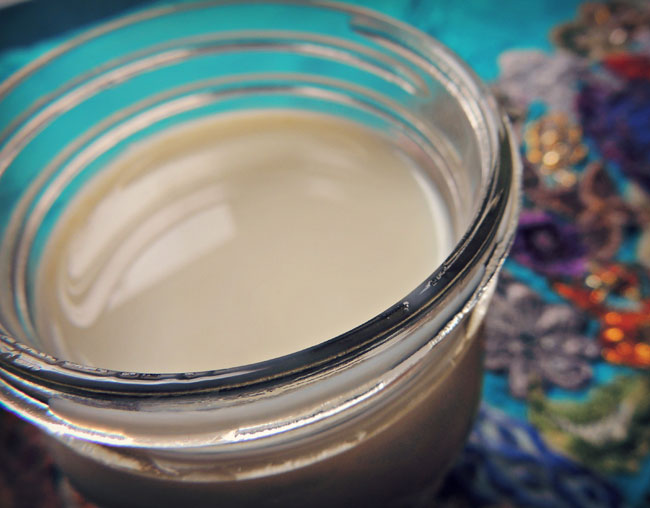
8oz of fresh milk, yogurt, and kefir contain about 40 mg of choline. Raw milk products preferable as they have not been subject to pasteurization, keeping fragile nutrients intact.
Soaked Nuts and Legumes
Legumes such as garbanzo beans, lima beans and lentils have about 70 mgs of choline per cup, while sunflower seeds, pumpkin seeds and almonds have around 60 mgs of choline per cup. Nuts and legumes should be consumed in moderation however, as they do contain considerable amounts of anti-nutrients. Seek animal foods as your primary source of choline, but augment with plant based sources as desired.
Cruciferous Veggies
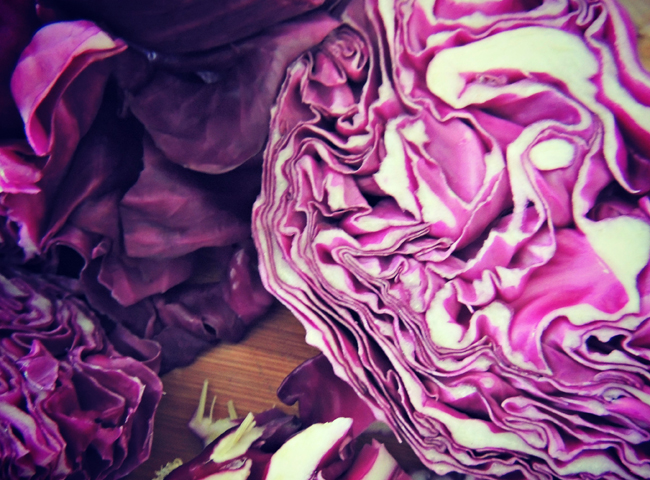
Veggies from this group, including cauliflower, cabbage, bok choy and broccoli, boast around 65 mg of choline per cup cooked. These vegetables are best enjoyed lightly steamed and with plenty of butter or grass-fed ghee to aid in nutrient assimilation.
Learn More:
The Perfect Health Diet by Paul and Shou-Ching Jaminet
The Nourishing Traditions Book of Baby and Child Care by Sally Fallon Morell and Thomas S Cowan, MD
Choline Profile Oregon State University
Photo Raw Beef Liver by ryumu/Courtesy flickr

